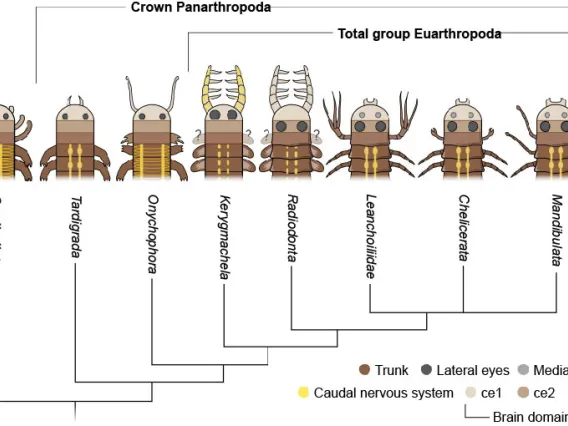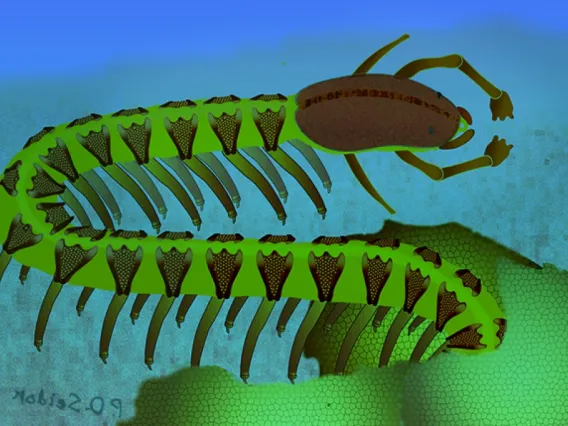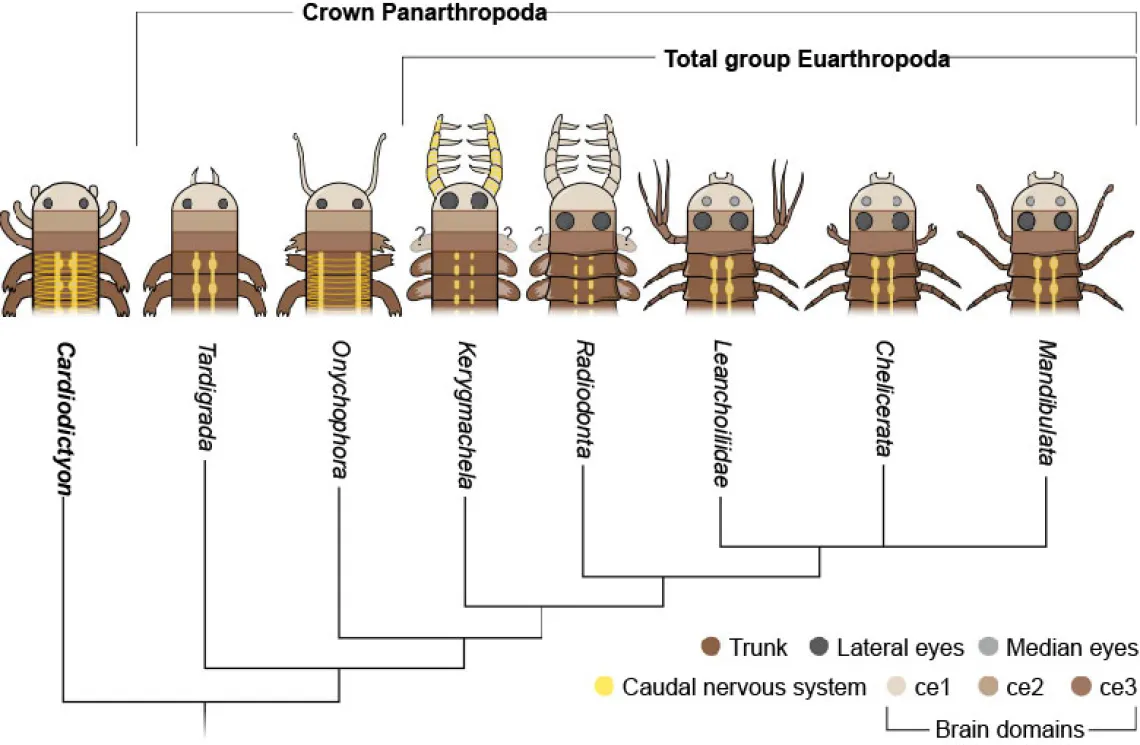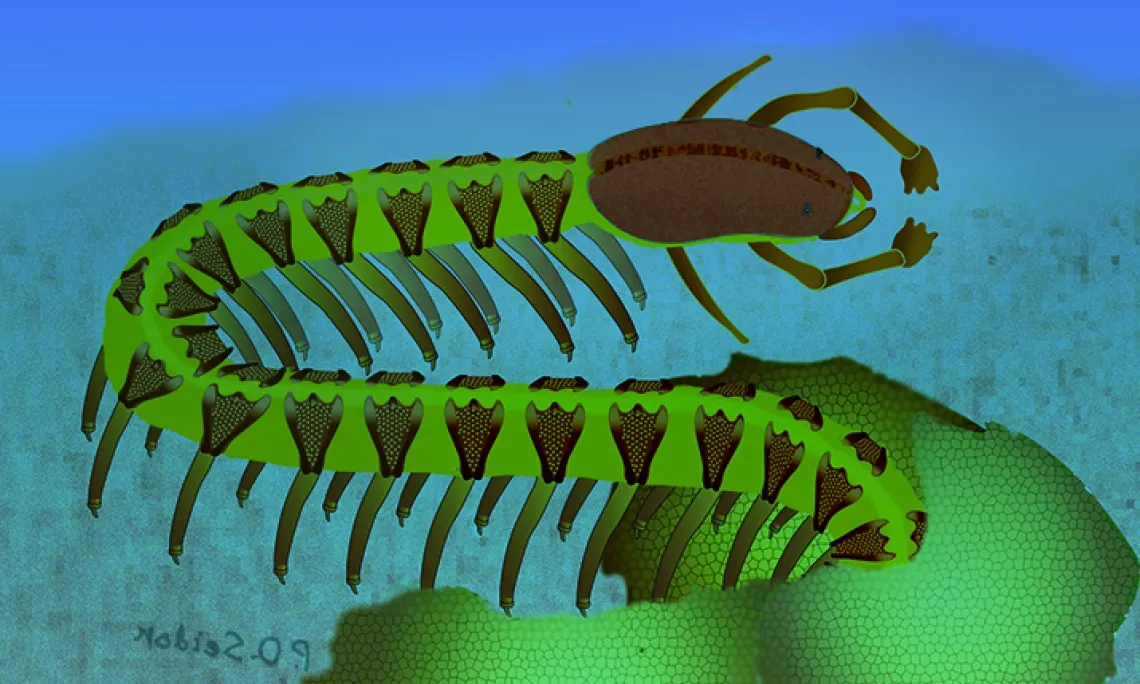Strausfeld Study Published in Science
Science, Vol. 378, No. 6622
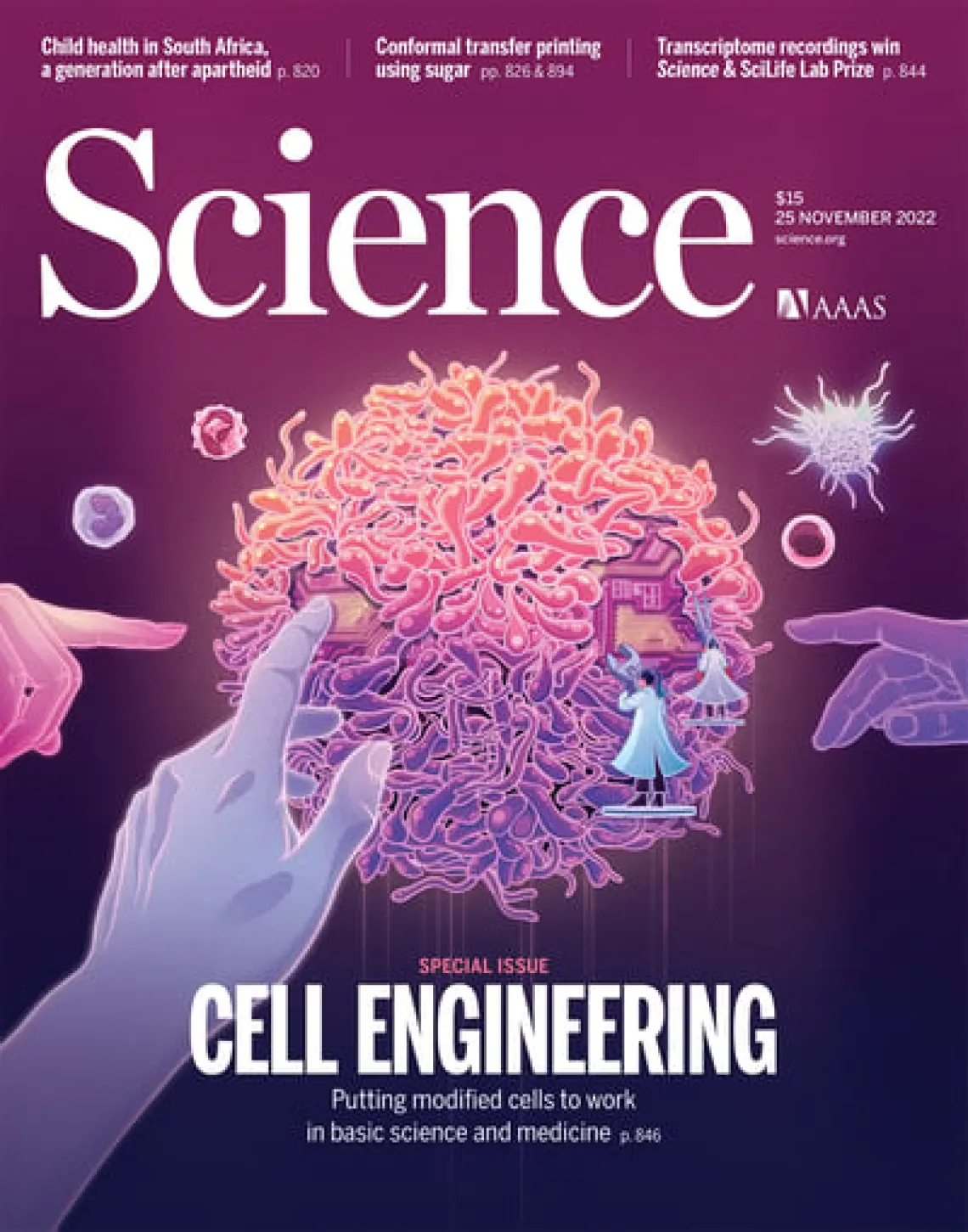
The work of University of Arizona Regents Professor of Neuroscience, Nicholas Strausfeld, PhD published in the November 2022 issue of Science
AAAS/Science
Fossils of a tiny sea creature that died more than half a billion years ago may compel a science textbook rewrite of how brains evolved.
A study published in Science – led by Nicholas Strausfeld, a Regents Professor in the University of Arizona Department of Neuroscience, and Frank Hirth, a reader of evolutionary neuroscience at King's College London – provides the first detailed description of Cardiodictyon catenulum, a wormlike animal preserved in rocks in China's southern Yunnan province. Measuring barely half an inch (less than 1.5 centimeters) long and initially discovered in 1984, the fossil had hidden a crucial secret until now: a delicately preserved nervous system, including a brain.
"To our knowledge, this is the oldest fossilized brain we know of, so far," Strausfeld said.



